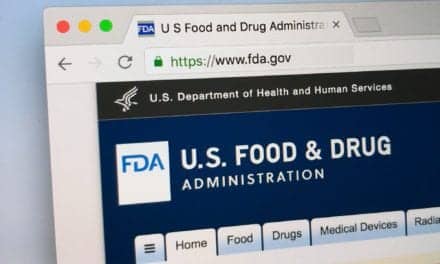A Phase 3 trial will evaluate the safety and efficacy of NVX-CoV2373, a vaccine candidate developed by Novavax Inc. The vaccine is the fifth COVID-19 vaccine candidate to begin clinical trials, after Pfizer/BioNTech, Moderna, AstraZeneca, and Johnson & Johnson.
The randomized, placebo-controlled trial will enroll approximately 30,000 people at approximately 115 sites in the United States and Mexico. According to CNN, the company intends to have at least 25% of the study population to be age 65 or older, at least 15% to be Black, at least 10 to 20% Latinx and 1-2% American Indian.
“Addressing the unprecedented health crisis of COVID-19 has required extraordinary efforts on the part of government, academia, industry and the community,” said NIAID Director Anthony S. Fauci, MD. “The launch of this study — the fifth investigational COVID-19 vaccine candidate to be tested in a Phase 3 trial in the United States — demonstrates our resolve to end the pandemic through development of multiple safe and effective vaccines.”
Adults who are interested in joining this study can find more information at Coronaviruspreventionnetwork.org, Novavax.com/PREVENT-19 or NCT04611802.
Volunteers will be asked to give informed consent prior to their participation in the trial. They will be grouped into two cohorts: individuals 18 through 64 years old and those aged 65 and older, with a goal of enrolling at least 25% of all volunteers who are 65 years old or older. Trial organizers also are emphasizing recruitment of people who are at higher risk of severe COVID-19 disease, including those who are Black (including African Americans), Native American, or of Latino or Hispanic ethnicity, and people who have underlying health conditions such as obesity, chronic kidney disease or diabetes.
After providing a baseline nasopharyngeal and blood sample, participants will be assigned at random to receive an intramuscular injection of either the investigational vaccine or a saline placebo. Randomization will be in a 2:1 ratio with two volunteers receiving the investigational vaccine for each one who receives placebo. Because the trial is blinded, neither investigators nor participants will know who is receiving the candidate vaccine. A second injection will be administered 21 days after the first.
Participants will be followed closely for potential vaccine side effects and will be asked to provide blood samples at specified time points after each injection and during the following two years. Scientists will analyze the blood samples to detect and quantify immune responses to SARS-CoV-2, the virus that causes COVID-19. Of note, specialized assays will be used to distinguish between immunity as a result of natural infection and vaccine-induced immunity. The trial’s primary endpoint is to determine whether NVX-CoV2373 can prevent symptomatic COVID-19 disease seven or more days after the second injection relative to placebo.
“We’ve come this far, this fast, but we need to get to the finish line,” said NIH Director Francis S. Collins, MD, PhD. “That will require multiple vaccines using different approaches to ensure everyone is protected safely and effectively from this deadly disease.”
Novavax’s investigational vaccine, NVX-CoV2373, is made from a stabilized form of the coronavirus spike protein using the company’s recombinant protein nanoparticle technology. The purified protein antigens in the vaccine cannot replicate and cannot cause COVID-19. The vaccine also contains a proprietary adjuvant, MatrixM™. Adjuvants are additives that enhance desired immune system responses to vaccine. NVX-CoV2373 is administered in liquid form and can be stored, handled and distributed at above-freezing temperatures (35° to 46°F). A single vaccine dose contains 5 micrograms (mcg) of protein and 50 mcg of adjuvant.
In animal tests, NVX-CoV2373 vaccination produced antibodies that blocked the coronavirus spike protein from binding to the cell surface receptors targeted by the virus, preventing viral infection. In results of a Phase 1 clinical trial published in the New England Journal of Medicine, NVX-CoV2373 was generally well-tolerated and elicited higher levels of antibodies than those seen in blood samples drawn from people who had recovered from clinically significant COVID-19. NVX-CoV2373 also is being evaluated in a Phase 2b trial in South Africa, now fully enrolled with 4,422 volunteers, and data from a Phase 1/2 continuation trial in the United States and Australia is expected as early as first quarter 2021. Novavax also recently completed enrollment of more than 15,000 volunteers in a Phase 3 trial of the candidate vaccine in the United Kingdom, which is also testing two injections of 5 mcg of protein and 50 mcg of Matrix-M adjuvant administered 21 days apart.
An independent Data and Safety Monitoring Board (DSMB) will provide oversight to ensure the safe and ethical conduct of the study. All Phase 3 clinical trials of candidate vaccines supported through OWS are overseen by a common DSMB developed in consultation with the NIH Accelerating COVID-19 Therapeutic Interventions and Vaccines (ACTIV) initiative.









